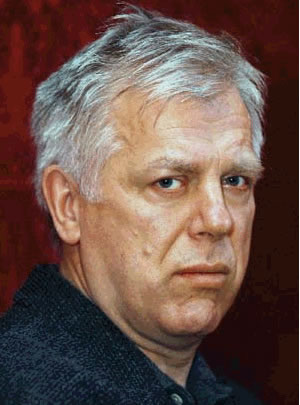Einar Schleef
Einar Schleef died completely alone in the hospital on July 21.2001. No relatives could be found, so the hospital administration apparently turned to his lawyer. He never answered my last letter with its awkward get-well-soon wishes. On the day he died, a fact that was unknown to me at the time, I wrote a short text about him for a photographer, a common acquaintance of ours. She had often photographed him. He had almost finished directing my most recent play before he had his first heart-attack. I hope they’ll find a cassette that he used to monitor himself while playing the role of my father („The Wanderer“) during rehearsal. I would be very happy if I could have it as a souvenir of him. I don’t know what else to say. Please read his books! Really! Schleef was as poet and theater person the most exceptional figure I ever met. There were only two geniuses in Germany after the War, Fassbinder in the West and Schleef in the East. They were both insatiable but only so they could give more. Finally they gave themselves totally. They tripped over themselves and spit out their hearts. That’s how a bourgeois person like myself imagines it. Neither got to be old. For me it’s a terrible loss. Today, before I received the news of Schleef’s death, I started working on my new play, which I had wanted to write for him. He insisted on producing it at the Burgtheater in Vienna. Schleef always criticized me intensely because I refused to have my plays performed in Austria. He thought that my real audience was here, and together with me he wanted to address that audience and show it something that was also important for him. A great honor for me, but what can you say about a country where established politicians are allowed to say the nastiest obscenities about Jews without fear of punishment? Still. He would have convinced me. I would have done anything for him. Schleef had experienced other de facto fatal lessons back then in East Germany, when he still was living there. A child that makes puppets, puts clothes on them that he designed himself and has them perform for the children in the neighborhood. Someone who can only do what he can. Einar, a one-of-a-kinder, someone said about him once (Schödel, I think). Where another confines, Einar’s defines (Morak, I think. No, not Morak). I hope so. He left East Germany, but it never left him. His heart just had to break so that he could break out of himself.
23.10.2005
5.8.2001 in Format, am 7.8.2001 in der Frankfurter Rundschau
zur Startseite von www.elfriedejelinek.com
